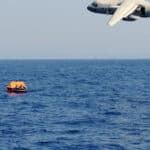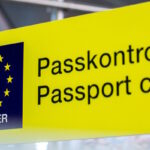Just supplying weapons to Ukraine, without making an effort to find dialogue or diplomatic engagement, leads nowhere but to the massacre of the Ukrainian army - including collateral damage in the thousands of civilian casualties involved in all-out resistance.
There is no lack of similar situations in history that have required different solutions. For example, in May 1940 the Belgian army, exhausted and with the skies in Luftwaffe's hands, had no way out. The Germans bombed the rail networks and the only remaining viable roads, making the retreat a massacre. In spite of the 1,700 square kilometers that remained in Belgian hands, the still free soldiers and 3 million civilians who fled, King Leopold called an armistice, bringing the conflict to an honorable end for the Belgian people in 18 days.
Now, even if in the current case the forces on the field are quite different, I believe that an attempt at dialogue with Putin should still be initiated, even by those who have used strong words towards the other side or have supplied or are supplying weapons to Ukraine. On the other hand, if one has the responsibility of assuming the position of "co-belligerent" through the delivery of weapons to a belligerent, one must also assume the burden and the honor of finding a peaceful solution to the conflict, before the situation precipitates irretrievably. The confrontation of the reciprocal positions must not be relegated only to the battlefield, otherwise the continuation of a conflictual situation extremely harmful in terms of lost human lives and, for Ukraine, of slow but inexorable loss of territorial sovereignty.
In addition to the resounding position taken by our Foreign Minister Di Maio, at the end of February, with the renunciation of any dialogue with the Russian counterpart, even the missed meeting between Pope Francis and Moscow Patriarch Kirill, scheduled for June in Jerusalem and prepared for some time (well before the war in Ukraine began), must be recovered according to every Christian attention - or Roman pietas - to remedy the heinous clashes taking place between two peoples faithful, at least on paper, to Christian teaching.
The confrontation, the dialogue is needed where it is necessary, not only in talk shows or at Atlantic distance. If Russia's objectives are clearly defined by the operational situation of territorial occupation carried out by its own armed forces, it is not fully perceived where the West wants to go with its strategy of massive engagement in just unloading planes full of weapons in Kiev. If this is the position of Biden's democratic government (with the Pentagon itself rather skeptical about the strategy undertaken), Europe - and Italy in the lead - cannot afford to unilaterally close the diplomatic dialogue now delegated to the pragmatic Turkey. A Turkey that, however, has obvious weaknesses with both sides: from Russia it depends on gas supplies to 45% and from Ukraine it receives money in exchange for the dreaded Bayraktar TB2 drones that are doing so much harm to Russian forces.
Beyond the propagandistic affirmations of the Russian Foreign Minister Sergej Lavrov in the interview given to the program " Zona Bianca " of Rete 4, I would like to underline how in some passages he outlines - and repeats - the position of dialogue that could be a starting point for a diplomatic dialogue with the Russians: a neutral Ukraine and the recognition in the East and in the South of ethnic Russians' autonomy, perhaps through the interposition in situ of the blue helmets, even through plebiscites controlled by the UN.
Italy should not be subject to others' decisions, but should assert its reasons, linked both to the always respected humanitarian aspects and to its legitimate national interests. Ukraine can stay out of NATO, but assume as Finland and Sweden the role of partners (and, in my opinion, it is good that they remain such).
Senior Fellow of the Centro Studi Machiavelli. Admiral of division (res.), former commander of destroyers and frigates, he has held important diplomatic, financial, technical and strategic assignments for the Defence and Navy Chiefs of Staff, both at home and abroad, at sea and on land, pursuing the application of capabilities aimed at making the Italian defence and security policy effective.









Scrivi un commento